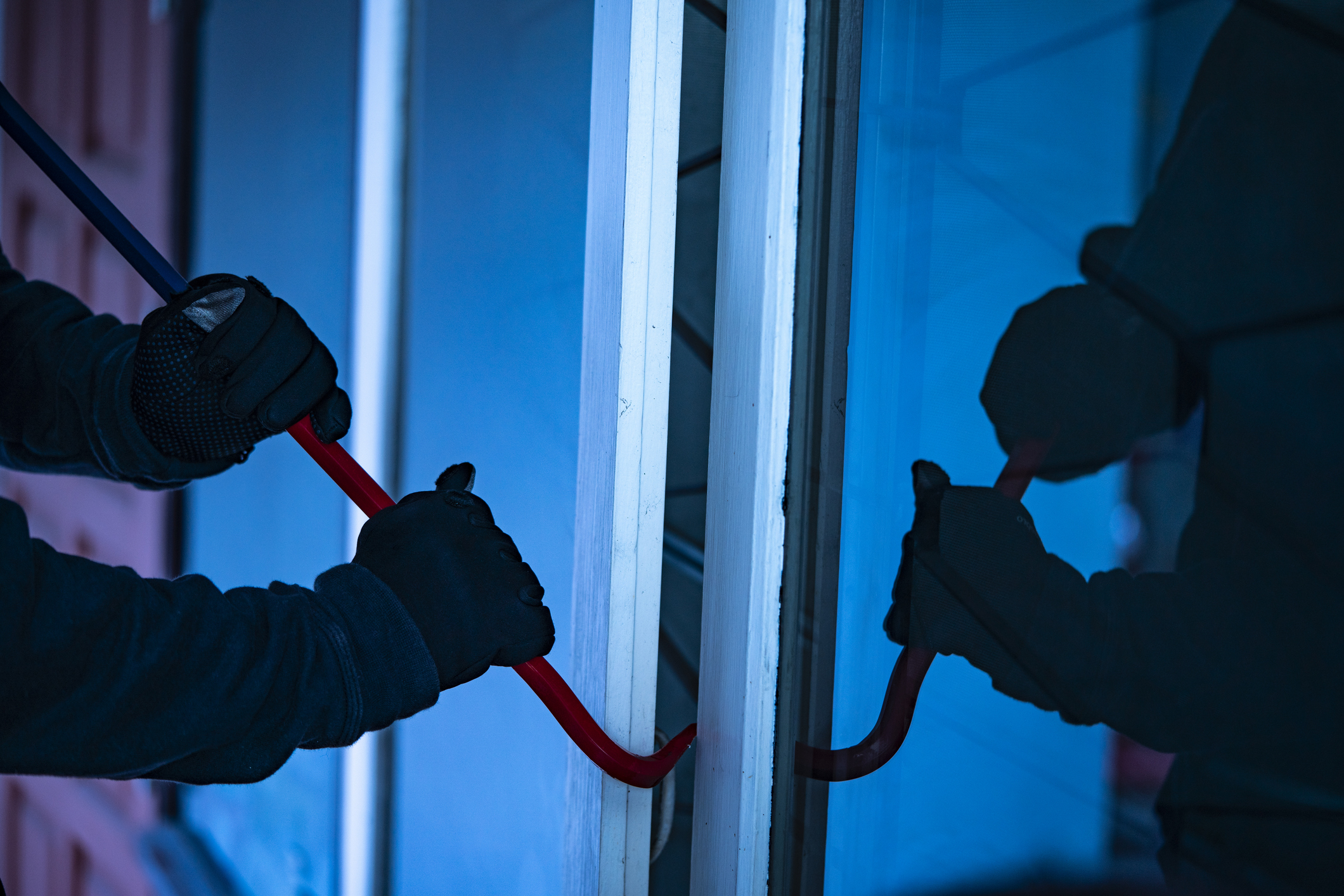How to protect your home from burglars
Following home security tips can reduce risk and deter criminals from targeting your property.


Get the latest financial news, insights and expert analysis from our award-winning MoneyWeek team, to help you understand what really matters when it comes to your finances.
You are now subscribed
Your newsletter sign-up was successful
Want to add more newsletters?

Twice daily
MoneyWeek
Get the latest financial news, insights and expert analysis from our award-winning MoneyWeek team, to help you understand what really matters when it comes to your finances.

Four times a week
Look After My Bills
Sign up to our free money-saving newsletter, filled with the latest news and expert advice to help you find the best tips and deals for managing your bills. Start saving today!
As the weather gets warmer, many people will make plans to leave their home, either for the day or on holiday. But with theft remaining a persistent problem across the UK, home security is no longer a luxury – it is a necessity.
Understanding how to protect your property from burglars is about more than just locking your front door and checking your home insurance cover. We highlight six ways to improve your home security and peace of mind while you're elsewhere.
1. Keep windows and doors secure
Windows and doors are entryways to the home, and so if you want to protect your home from burglars, keep these secure. With more than a third of break-ins thought to be made through the front door, security here is vital.
MoneyWeek
Subscribe to MoneyWeek today and get your first six magazine issues absolutely FREE

Sign up to Money Morning
Don't miss the latest investment and personal finances news, market analysis, plus money-saving tips with our free twice-daily newsletter
Don't miss the latest investment and personal finances news, market analysis, plus money-saving tips with our free twice-daily newsletter
"If you've just bought your home, security should be your first priority from the moment you move in. Changing the locks on your new property shouldn't be an afterthought, as you simply can't know who might still have a set of keys. And that's not a risk worth taking," explains Phil Spencer, TV property expert and founder of the property advice website Move iQ.
It is never too late to secure your property, even if you moved in a while ago. Spencer recommends both a Yale and a double-action mortice lock, as when used together, they will make your front door much more secure. Renters may be able to change the locks, but they should check their tenancy agreement and contact their landlord or letting agency for further clarification.
Spare keys also serve as a point of weakness, so keep these safe by avoiding the more obvious 'safe keeping' locations.
"Don't undo all your hard work by leaving a spare key under a plant pot! Opportunistic thieves will look for a key in traditional hiding places like this, so it's never worth the risk. If you need to leave a key for others to get in, keep it in a discreetly hidden lockbox secured to a wall," Spencer adds.
2. Use UV marks
Forensic marking can be an effective tool in keeping belongings safe. The use of specialised pens, liquid or markers can leave a mark invisible to the naked eye, but one that can be clearly seen under an ultraviolet light.
While UV marking may not stop burglars, it does mean if items are stolen, they are harder for thieves to sell, and easier for police to identify.
"Burglars will always target the properties they believe present the least risk and promise the most reward," says Gary Higgins, former superintendent at West Mercia Police and director of security and risk at DeterTech.
"Make your property less appealing and the majority will look elsewhere."
3. Use smart devices and security cameras
As technology advances in leaps and bounds, the use of smart devices to protect your home from burglary is becoming an increasingly popular choice. Whether it's smart cameras, video doorbells or smart lighting, visible signs of security can deter would-be intruders.
If you're using smart or security cameras, ensure these are functioning properly and positioned to cover vulnerable entry points across the property.
"Although CCTV is a valuable tool, it doesn’t prevent a crime from being committed," explains Jonathan Wall, UK Managing Director at SimpliSafe UK. "For ultimate security, opt for a monitored system, so that if triggered, an alarm company or designated key holder can check to ensure it isn't a false alarm, or call the emergency services."
However, it is important to ensure you are complying with local laws and regulations to avoid falling foul of the police yourself.
"Ensure cameras don't infringe on your neighbour's privacy, so avoid pointing cameras at areas outside your property," says Sam Tamlyn, window expert and managing director of Shutterly Fabulous. "Similarly, in some areas you may be required to display signs indicating surveillance is in use."
4. Protect your garden
Improving the outdoor appearance of your property can also help to protect your home from burglars.
"Neglecting your home's appearance is a mistake, as an uncared-for home will seem easier to break into," explains Sumier Foster-Shah, customer service manager at ERA. "Tidying the garden can act as a deterrent."
Similarly, by leaving items out in your garden such as garden furniture, ladders and tools, you could inadvertently be giving a burglary an easier leg-up into your home.
"Don't position your garden table under a window, allowing a burglar to climb up, and make sure garden tools are in the shed so a burglar can't use them to gain access to your home," Foster-Shah adds.
Important valuables such as bikes, lawn mowers and power tools can be vulnerable to theft even if they're stored in a shed, so it's important to take appropriate security precautions.
Choosing where you place your shed can be a good start, because if burglars are unable to see it from the street, they won't know it is there. If the shed is kept away from fences or walls, it is less likely to provide burglars with a climbing route into the property.
Sheds should always be secured with locks and you may also wish to consider a security door, suggests Sam Jenkinson, garden shed expert at Tiger. "I recommend upgrading your current lock to a disc padlock with hasp and staple. The hasp covers the screw fittings which is a prime weak spot thieves would otherwise try to exploit."
Similarly, installing gravel around your shed could be a simple way to provide extra security. "Gravel paths are great for making sure you can hear anyone approaching your property," Jenkinson explains. "The loud crunch of footsteps can be enough of a deterrent for a burglar to move on to another target."
5. Don't advertise your home to thieves
In an online era, it can be all too tempting to post in real time about your latest foreign holiday or weekend away. However, your social media could effectively serve as an open invitation to burglars.
"Managing your digital presence is important as high-profile individuals, such as footballers, have been targeted after burglars tracked their social media for clues about their whereabouts," says Jack Charman, managing director of National Private Investigators.
"Sharing travel plans or extended absences online can inadvertently signal your home is empty."
In a similar way, Charman advises "thoroughly vetting" any household staff such as cleaners or gardeners if you are keen to prevent "insider threats".
6. Think about remote access
With smart devices on the rise, you can control your heating, check the items in the fridge, or turn the lights on or off with the click of a button.
But while these appliances and controls can help our lives feel more seamless, they may do the opposite of protecting your home from burglars.
While physical intervention can help protect your home from burglars, also consider the ways you can protect your technology, too, as cyber-enabled burglary is on the rise.
To prevent this kind of intrusion, always use secure passwords as well as changing these regularly, and trying to use a unique password for each device.
Enabling two-factor authentication may also help. This security feature requires two different methods of verifying your identity to access something, adding an additional layer of protection from hacking.
Get the latest financial news, insights and expert analysis from our award-winning MoneyWeek team, to help you understand what really matters when it comes to your finances.
Rebekah is a news and personal finance journalist with extensive experience in digital journalism. She is currently Newsletter Editor (Global) at TheWeek.com, and a regular contributor to The Week Unwrapped podcast. Rebekah was previously Senior Personal Finance Reporter at Express.co.uk. Her interests include pensions, savings and money saving tips.
-
 Can mining stocks deliver golden gains?
Can mining stocks deliver golden gains?With gold and silver prices having outperformed the stock markets last year, mining stocks can be an effective, if volatile, means of gaining exposure
-
 8 ways the ‘sandwich generation’ can protect wealth
8 ways the ‘sandwich generation’ can protect wealthPeople squeezed between caring for ageing parents and adult children or younger grandchildren – known as the ‘sandwich generation’ – are at risk of neglecting their own financial planning. Here’s how to protect yourself and your loved ones’ wealth.
